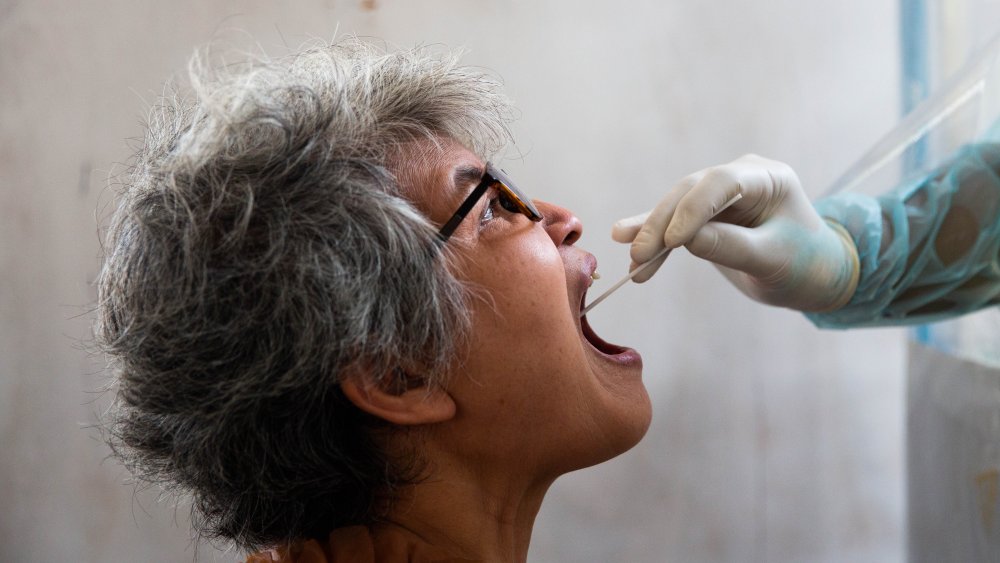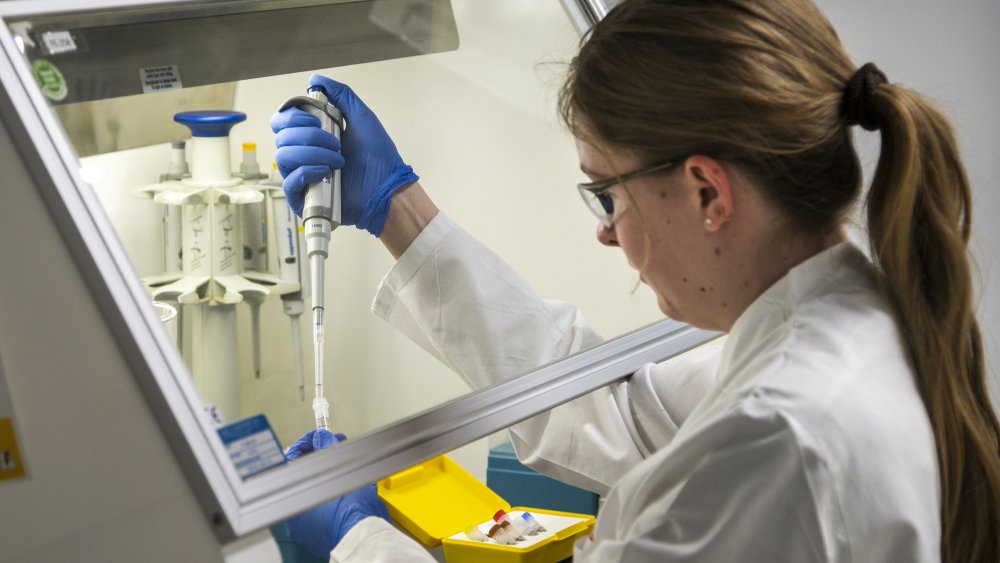Can You Actually Get COVID-19 More Than Once?
The New York Post reports that in March 2020, former White House reporter Lucian Wintrich hosted a so-called "coronavirus potluck," which, quite honestly, sounds incredibly unlucky. He instructed attendees not to wash their hands and would later say, "It was relatively inspired by the chickenpox parties that were all the rage in the 90s." Those parties were meant to infect children with chickenpox, though Wintrich denied purposely spreading disease at his own gathering. But even knowingly exposing people poses a huge problem.
COVID-19 is nothing to trifle with. While mild cases may resemble "the flu or a strong cold," according to Johns Hopkins medicine, the illness can place extreme strain on the respiratory system, cause kidney failure, or end in death. In late April, new revelations emerged about the harm COVID-19 is capable of. France 24 reports that doctors have observed a surge in blood clots, heart attacks, and strokes in young people. Blood clotting caused by COVID-19 has forced physicians to amputate patients' fingers and in the case of Broadway star Nick Cordero, his right leg.
Wintrich tried to shield himself from criticism with an appeal to herd immunity, arguing, "The majority of folks I invited, if they got it, would recover fairly quickly and build up an immunity to the present form of COVID19." But here's the thing: no one really knows if catching COVID-19 prevents infections in the future, and some evidence suggests that it doesn't.
Uncertainty in the air
CBS asked Dr. Stanley Perlman whether people could catch COVID-19 twice. His answer: "I don't think we know the answer to that yet." However, related illnesses may yield useful clues. As noted by the BBC, there are multiple coronavirus strains which infect humans. The one which causes COVID-19 is SARS-CoV-2, but six others exist. Four produce common cold symptoms while the other two are SARS and MERS. Perlman studied coronaviruses for 40 years and observed that half of SARS survivors developed antibodies that persisted for at least 17 years. However, as the BBC points out, some coronaviruses may re-infect a person within a year.
SARS-CoV-2 afflicted nurse practitioner Lisa Merck in March and she emerged from isolation 21 days later; at which point tests indicated that she was free of COVID-19. Fast-forward 7 days, and she tested positive. Did Merck contract COVID-19 a second time or did the disease just reach an undetectable low level before flaring up again? The jury's out, but in the meantime, it's every juror's duty to avoid spreading it.

